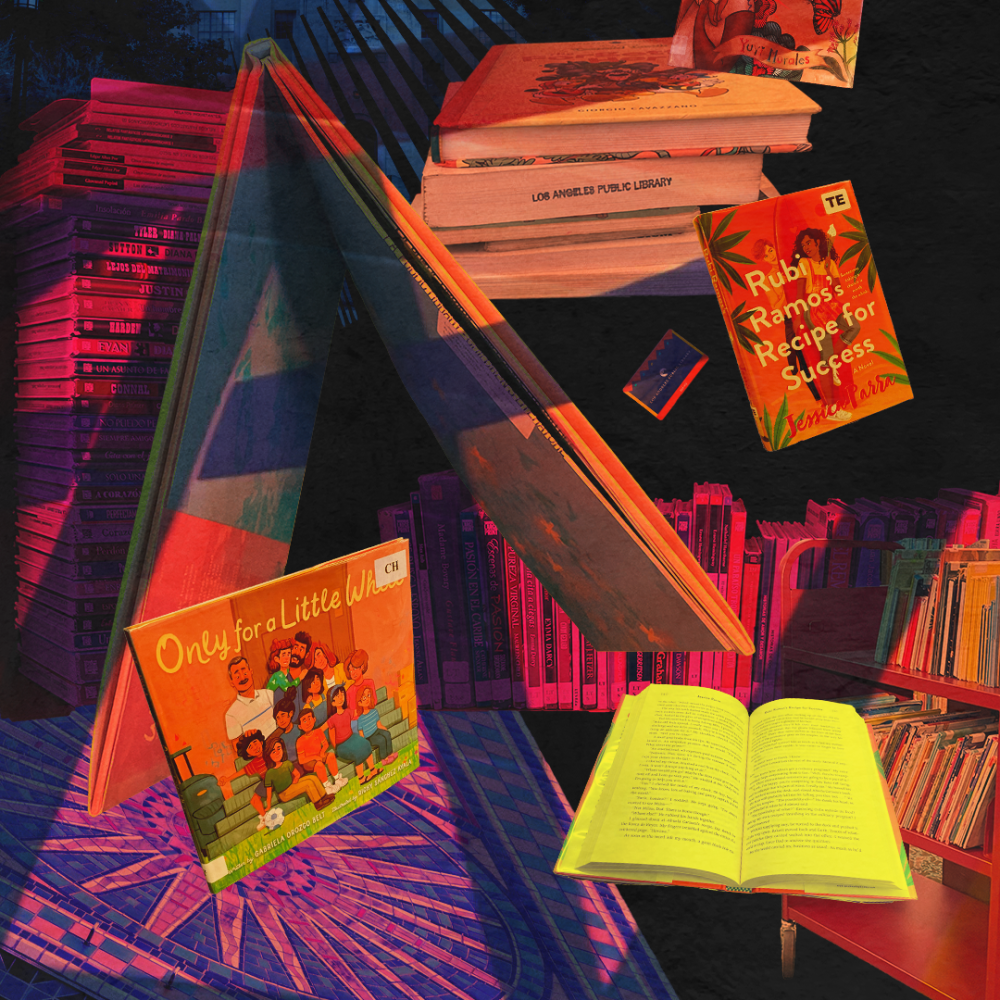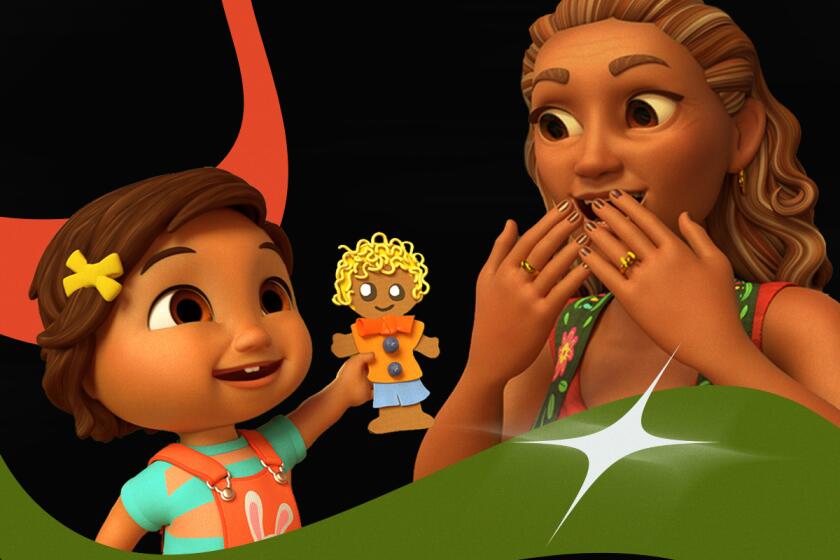
- Share via
More than just a place for books, libraries have evolved into community centers where culture, tradition and creativity intersect. And for the Latino community, libraries are not just silent witnesses to their evolving narratives, but also active participants in shaping their literary futures.
That couldn’t be more true for Ana Siqueira, a Brazilian American author who, in 2018 set a plan to read 25 picture books per day for three months in order to catch up with the new styles of storytelling and story structure.
“When you’re learning to write, you have to read a lot,” she said. “It was very, very important for me, in the sense of really giving me the opportunity to read so many books — not breaking my budget.”
In a sweeping reversal, the Pulitzer Prize Board will accept submissions from non-U.S. citizens but the change will not go into effect until 2025.
The opportunity to read all those books for free bore fruit and resulted in her picture book “Bella’s Recipe for Success” published by Beaming Books in 2021.
With a large array of services, libraries serve as a hub of resources and opportunities free for all patrons. Need to hop online but don’t have an electronic device? Borrow a computer for the day or for up to six months. Looking to sharpen your English skills? The library offers literacy and English as a second language tutoring.
Recognizing the digital shift, many libraries offer e-resources for writers, making the process of storytelling even more accessible. LAPL Writes, an initiative of the Los Angeles Public Library, curates a series of free resources specifically catered to local authors.
The website includes a section dedicated to the Indie Author Project, which provides L.A.’s self-published authors the opportunity to submit their work for consideration to be included in the library circulation collection. The collection reaches audiences throughout California and potentially nationwide.
“My career as a writer would probably be over if it wasn’t for libraries having my back,” said Jessica Parra an attorney-turned-young-adult author with Cuban and Guatemalan roots who likes to visit the Downey city library. “Libraries have really uplifted and highlighted my debut novel, ‘Rubi Ramos’s Recipe for Success.’ They [librarians] are constantly doing the Lord’s work in terms of showcasing new voices and funneling them to the readers that need these stories the most.”
Authors and writers can also find a calendar of events that features writing groups, poetry open mics and authors programs, as well as a curated book list of titles ranging from general writing advice, writing fiction and nonfiction to editing and publishing.
The new series is based on a Latinx family and focuses on bringing educational content to bilingual and Spanish-speaking households.
Libraries are even going further in their quest to support creators by hosting author sessions, book readings and discussions featuring Latino writers. These platforms offer authors direct access to their audiences, allowing genuine feedback and fostering a community connection.
Lupie Leyva, senior librarian at the Benjamin Franklin Branch in Boyle Heights, has served the Latino community for more than 19 years. A champion for Latino authors, she is one of the founding members of the Los Angeles Libros Festival. The festival is a free event that annually celebrates bilingual storytelling by highlighting established and emerging authors in Spanish and English.
Gabriela Orozco Belt, author of the picture book “Only for a Little While,” published by Balzer + Bray, emphasizes how important it is to remember that Latinos come from so many countries and backgrounds and that all of those countries deserve to be represented in books.
Orozco is the daughter of Costa Rican parents who grew up visiting the Moreno Valley Public Library with her mother. For Orozco, the library served as more than just a quiet place to read. It was a bridge to her roots and an affirmation of her identity. The same can be said for other Latino authors.
“Picture books helped me find my path and my purpose as an immigrant,” said Yuyi Morales, a Mexican American author and illustrator whose immigration story intertwines with the transformational power of libraries. She shares her journey in her picture book “Dreamers,” published by Neal Porter Books.
When Morales first arrived in the U.S., she felt as if the connection with the things that were meaningful to her were lost, like her ability to understand and be understood in her own language, her friends and her work as a swimming coach.
For speakers of some of the most commonly spoken native languages like Quechua, Nahuatl or Guarani, the conversation is less about whether you speak Spanish but rather how Indigenous languages are left out of the discussion.
“The library became a safe place,” she said. A place where her questions had answers and where she could find a connection with her new life. The library facilitated that new connection as she fell in love with storytelling. “Going to the library and encountering books by Chicanx and Mexicanx and people from all over Latin America,” Morales said, was key in her journey and the inspiration to later become an author.
“The power that lies in offering a child who visits the library a book in which they can see themselves and their culture” is a resource with the potential to change lives, Leyva said. The blossoming of Latino literature is the guarantee that Latino stories and culture will be available for generations to enjoy.
Roxsy Lin is a bilingual journalist and illustrator originally from Venezuela. Her work focuses on covering the pulse of the modern rhythms of Latinidad, arts and culture. @roxsy_lin
More to Read
The Latinx experience chronicled
Get the Latinx Files newsletter for stories that capture the multitudes within our communities.
You may occasionally receive promotional content from the Los Angeles Times.









